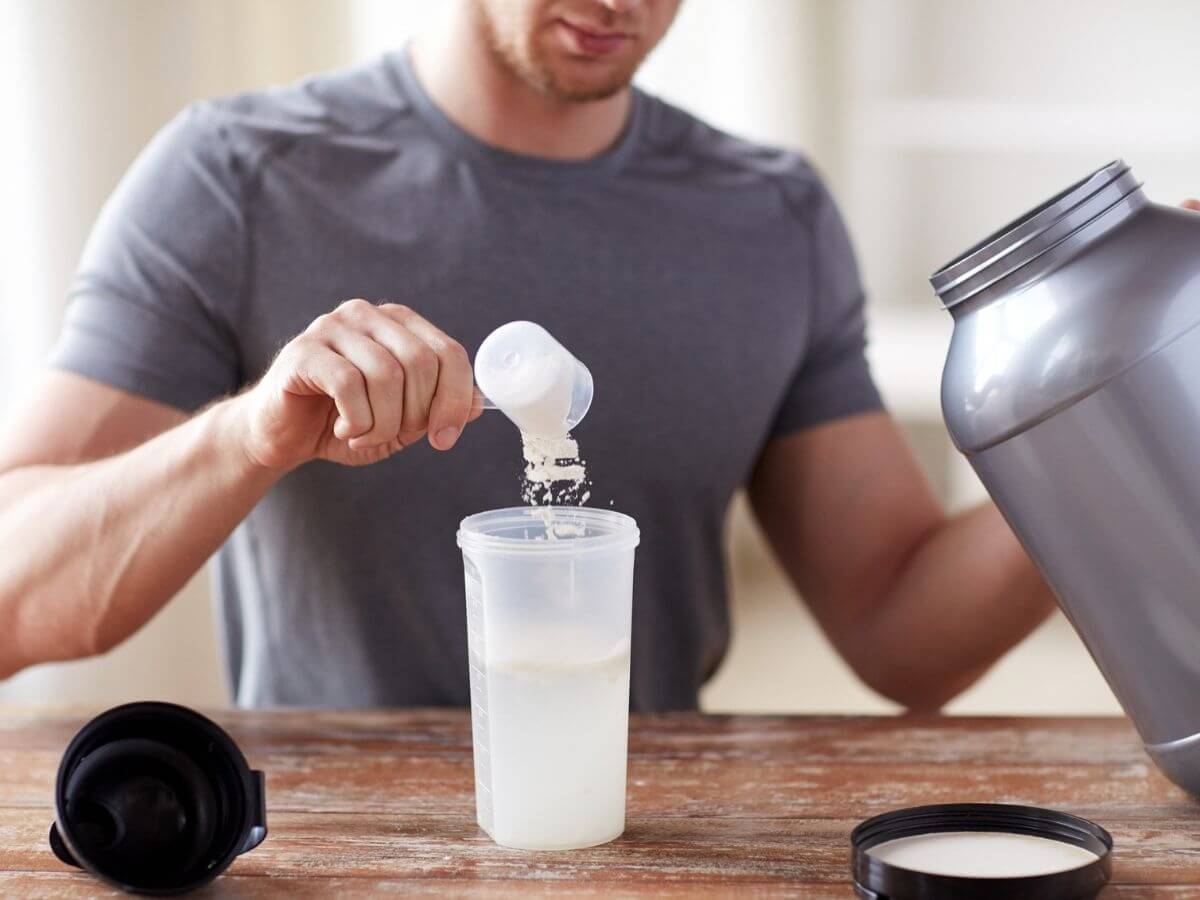Creatine: What Is It & What Does It Do?

What is creatine? It’s a substance found in muscle cells and the brain. Approximately 95% of the body’s creatine is stored in the muscles as phosphocreatine. Chemically, creatine is similar to amino acids, which are the building blocks of proteins.
What does creatine do? Muscle cells use creatine to produce energy, as it helps the body create a high-energy molecule known as ATP. Although the liver, pancreas, and kidneys naturally produce creatine, you can also get it from red meat and seafood.
Some people take oral creatine supplements to improve their athletic performance, particularly if they’re involved in high-intensity activities like weightlifting and sprinting. Doctors also prescribe oral creatine to treat specific brain disorders, neuromuscular conditions, and other disorders. Topical creatine can help improve the condition of aging skin.
Creatine Benefits
Research suggests that taking a creatine supplement can be beneficial in several ways.Creatine Benefits in Muscle
Creatine supplementation benefits the muscles by:- Helping you add more reps (repetitions) to your workouts
- Increasing muscle size, strength, and overall performance
- Increasing what’s called satellite cell signaling, which helps with muscle repair and growth
- Increasing water content in muscle cells, which is another factor in muscle growth
- Helping reduce muscle breakdown, resulting in an even greater increase in total muscle mass
In addition, studies have noted an increase in anabolic hormones like IGF-1, which aids in muscle formation, and a decrease in myostatin, a substance that can inhibit new muscle growth.
Creatine Benefits in the Brain, Bones, and Skin
Researchers have found that supplementing the body’s natural creatine stores may improve cognitive task performance, particularly in older adults. It may also slow the normal decline in bone mineral and skeletal muscle density, and creams containing creatine and folic acid may reduce skin wrinkles and improve sun damage.Creatine Benefits in Children
You should never give a child creatine without explicit directions from their pediatrician. However, there’s evidence that creatine supplementation can help reduce symptoms of specific creatine deficiency syndromes in children.Creatine Supplementation for Low Levels
Many people can benefit from taking a creatine supplement. However, these products are most helpful to those with low creatine levels, such as vegetarians whose diets don’t supply as much of it.How Much Creatine Should I Take and What Is Creatine Loading?
Researchers have used many different amounts of creatine in studies. Still, there’s no established recommended dose. People looking to improve their athletic performance with creatine supplements commonly take between 2 grams and 5 grams daily.
Often, they switch to this maintenance dose after first using a process called creatine loading. The creatine loading phase involves consuming 20-25 grams of creatine daily for 5 to 7 days. People typically divide this amount across 4 or 5 servings throughout the day.
While creatine loading is a common practice, it’s unclear whether it’s necessary or helpful. Some older studies suggested that the body can become saturated after consuming just 3 grams daily.
Regarding when to take creatine, it may be most helpful when consumed immediately before or after a workout.
Creatine Side Effects
Extensive studies have found that healthy people typically don’t experience side effects from taking a creatine supplement as directed. In the rare case that side effects occur, they can include:
- Upset stomach
- Diarrhea
- Headache
- Trouble breathing
- Fatigue
- Fever
- Nausea
- Vomiting
- Rash
- Anxiety
People sometimes ask, “Does creatine make you gain weight?” It may cause weight gain, but primarily from increased lean body mass. So, that’s more a benefit than a side effect.
Cautions About Creatine and Existing Medical Conditions
Creatine supplements are generally considered safe. However, it’s possible that taking creatine along with caffeine consumption of more than 300 milligrams per day (the amount in a little over three 8-ounce cups) might accelerate the progression of Parkinson’s disease. Creatine may also be unsafe for people with kidney problems.
Talk with Your Baptist Health Doctor About Creatine
If you wonder whether creatine supplementation would benefit you, your Baptist Health doctor can answer your questions. It’s essential to talk with them before you start a creatine regimen.
If you don’t have a provider, you can find one near you in our online directory.



